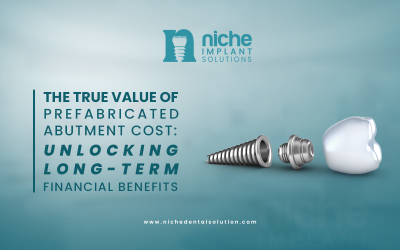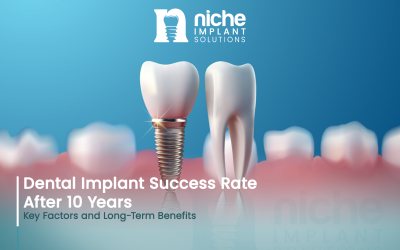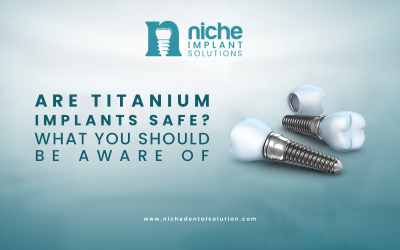When considering the best option for dental implants, it’s essential to make an informed decision. Dental implants are a popular and effective solution for replacing missing teeth, offering durability and a natural appearance. However, the best choice for dental implants can vary depending on individual needs, preferences, and dental health conditions. This comprehensive guide will delve into the best options for dental implants, covering key factors, procedures, and considerations to help you make the best choice.
Types of Dental Implants: Choosing the Best Option for Dental Implants
When it comes to finding the best option for dental implants, understanding the various types available is crucial. Dental implants are a popular and effective solution for replacing missing teeth, providing a durable and natural-looking alternative to traditional dentures or bridges. This comprehensive guide will explore the different types of dental implants, helping you determine which might be the best option for your needs.
1. Endosteal Implants
Endosteal implants are the most commonly used type of dental implant. These implants are surgically placed directly into the jawbone and are typically made from titanium. They are ideal for patients with a healthy and adequate bone structure.
Features of Endosteal Implants
- Material: Usually titanium, known for its strength and biocompatibility.
- Placement: Inserted directly into the jawbone.
- Suitability: Best for patients with sufficient bone density.
Advantages of Endosteal Implants
- High Success Rate: Proven track record of long-term success.
- Natural Look and Feel: Mimics the appearance and function of natural teeth.
- Durability: Designed to last for many years with proper care.
Disadvantages of Endosteal Implants
- Bone Density Requirements: Requires healthy bone density, which may necessitate bone grafting in some cases.
- Procedure Duration: May require several months of healing before placement of the final restoration.

2. Subperiosteal Implants
Subperiosteal implants are placed under the gum but above the jawbone. This type of implant is used for patients who do not have enough bone height or density for endosteal implants.
Features of Subperiosteal Implants
- Material: Typically made from titanium.
- Placement: Positioned on or above the jawbone but under the gum tissue.
- Suitability: Ideal for patients with insufficient bone density.
Advantages of Subperiosteal Implants
- Less Bone Density Required: Suitable for patients with low bone density who may not qualify for endosteal implants.
- Quicker Procedure: May require less overall time compared to endosteal implants in cases of severe bone loss.
Disadvantages of Subperiosteal Implants
- Limited Use: Less commonly used today due to advancements in bone grafting and other techniques.
- Potential Complications: Higher risk of gum irritation and implant movement compared to endosteal implants.
3. Zygomatic Implants
Zygomatic implants are a less common but highly effective option for patients with significant bone loss in the jaw. These implants are anchored into the cheekbone (zygoma) rather than the jawbone.
Also read: Bioactive Implants: The Next Frontier in Enhancing Dental and Orthopedic Outcomes
Features of Zygomatic Implants
- Material: Usually made from titanium.
- Placement: Inserted into the cheekbone, bypassing the need for significant jawbone density.
- Suitability: Ideal for patients with severe bone loss in the jaw who cannot undergo bone grafting.
Advantages of Zygomatic Implants
- No Need for Bone Grafting: Can be used in cases of severe bone loss where traditional implants might not be feasible.
- Immediate Results: Often allows for immediate loading of the implants, reducing overall treatment time.
Disadvantages of Zygomatic Implants
- Complex Procedure: Requires specialized training and experience for placement.
- Potential Complications: Higher risk of complications due to the complexity of the procedure and proximity to sinus cavities.
When determining the best option for dental implants, consider factors such as bone density, overall health, aesthetic preferences, cost, and the complexity of the procedure. Consulting with a skilled dental professional is crucial in making an informed decision tailored to your individual needs.
Another Types of Dental Implants
Understanding the different types of dental implants is essential for choosing the best option for dental implants. The main types include:
1. Mini Implants
Mini implants are smaller in diameter compared to traditional implants and are often used in cases where there is limited space or bone density. They can serve as a cost-effective and less invasive alternative.
Features of Mini Implants
- Material: Usually made from titanium.
- Placement: Smaller size makes them suitable for areas with limited space.
- Suitability: Ideal for patients with less bone density or those needing support for dentures.
Advantages of Mini Implants
- Less Invasive: Requires a less invasive procedure compared to traditional implants.
- Shorter Recovery Time: Typically involves a quicker recovery and less discomfort.
- Cost-Effective: Often less expensive than traditional implants.
Disadvantages of Mini Implants
- Limited Use: Not suitable for all cases, especially those requiring a high level of support.
- Reduced Durability: May not be as durable or strong as traditional implants, particularly for heavy loads.
2. All-on-4 Implants
All-on-4 implants are a specific technique where a full arch of teeth is supported by just four implants. This approach is designed to provide a stable and functional solution for patients missing an entire arch of teeth.
Features of All-on-4 Implants
- Material: Typically titanium.
- Placement: Four strategically placed implants support a full set of upper or lower teeth.
- Suitability: Ideal for patients who have lost most or all of their teeth and have sufficient bone density in specific areas.
Advantages of All-on-4 Implants
- Immediate Function: Often allows for immediate placement of a full arch of teeth.
- Reduced Number of Implants: Fewer implants needed compared to traditional methods.
- Less Invasive: Can reduce the need for bone grafting and other preparatory procedures.
Disadvantages of All-on-4 Implants
- Specialized Technique: Requires careful planning and execution by an experienced dental professional.
- Not Suitable for All Patients: May not be appropriate for those with severe bone loss or specific anatomical considerations.
By exploring these types of dental implants and understanding their specific advantages and limitations, you can select the best option for dental implants that will enhance your oral health, improve functionality, and boost your confidence with a natural-looking smile. Investing in the right dental implant solution ensures long-term benefits and a higher quality of life, making it a worthwhile consideration for anyone seeking to restore missing teeth effectively.

Choosing the Best Option for Dental Implants
Selecting the best option for dental implants depends on various factors, including:
1. Bone Density and Health
The condition of your jawbone plays a significant role in determining the best option for dental implants. Endosteal implants are typically preferred for patients with healthy bone density. For those with insufficient bone, subperiosteal or zygomatic implants might be more suitable.
2. Overall Health
Your general health and any existing medical conditions can impact the success of dental implants. Discuss any health concerns with your dental professional to determine the most appropriate implant type.
3. Aesthetic Preferences
If aesthetics are a primary concern, zirconia implants might be preferred due to their tooth-like appearance. For functional purposes, titanium implants are highly effective and commonly used.
4. Cost and Budget
Cost considerations are also crucial. Traditional implants may be more expensive, while mini implants and subperiosteal implants might offer more budget-friendly options. Consider the long-term benefits and durability when evaluating costs.
5. Procedure and Recovery
The complexity of the implant procedure and the expected recovery time can influence your decision. Discuss the details with your dentist to understand the procedure and what to expect.
Understanding the different types of dental implants is essential for choosing the best option for dental implants. Each type has its own advantages and is suitable for different circumstances. Whether you are considering endosteal, subperiosteal, zygomatic, mini implants, or All-on-4 implants, the key is to consult with a skilled dental professional who can guide you based on your specific needs and oral health.
By carefully evaluating your options and working closely with your dentist, you can make an informed decision that ensures the best outcome for your dental health. Dental implants offer a reliable and natural-looking solution for missing teeth, and selecting the right type can greatly enhance your oral function and confidence.
finding the Best Option for Dental Implants: A Niche Perspective
When exploring the best option for dental implants, it’s crucial to delve into specific niche within implant dentistry. These niche cater to unique needs and preferences, providing tailored solutions that enhance both function and aesthetics. This guide will help you navigate these specialized areas to determine the best option for dental implants based on your individual requirements.
Choosing the Best Option for Dental Implants
To determine the best option for dental implants within these niche, consider the following steps:
- Consult with a Specialist: Seek advice from an implant dentist who specializes in the niche you are interested in. They can provide a detailed assessment and recommend the best option based on your specific needs.
- Evaluate Your Oral Health: Your dentist will assess factors such as bone density, gum health, and overall oral condition to determine the most suitable implant type.
- Discuss Your Goals and Preferences: Share your expectations and preferences with your dentist. Whether it’s aesthetic concerns, budget constraints, or time limitations, understanding your goals will help in selecting the best option.
- Consider the Long-Term Impact: Think about the long-term outcomes and maintenance requirements of different implant types. Choose the option that aligns with your lifestyle and future oral health goals.
Conclusion
Finding the best option for dental implants involves understanding the various niche and their specific advantages. Whether you need mini implants for limited space, All-on-4 for a full arch, zirconia for aesthetic excellence, or single tooth implants for precise replacement, each niche offers unique benefits tailored to different needs.
Consulting with a skilled implant dentist and evaluating your specific situation will help you choose the best option for dental implants. With the right choice, you can achieve a beautiful, functional smile that enhances your confidence and quality of life.
For personalized advice and to explore the best option for dental implants tailored to your needs, contact our office today. Our team is dedicated to helping you achieve the perfect smile with the most suitable implant solution.





0 Comments